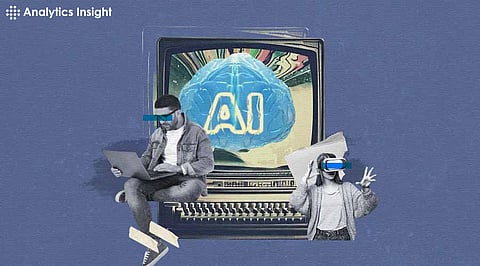

Generative AI, a branch of artificial intelligence that focuses on creating new content and ideas, is revolutionizing various industries. By leveraging algorithms that can generate text, images, music, and even code, generative AI is driving innovation, improving efficiency, and opening new avenues for creativity. This article explores how different industries are embracing generative AI use cases and the transformative impacts it is having.
Drug Discovery and Development
Generative AI use cases is accelerating drug discovery by predicting the structure of new molecules. AI models, such as those developed by companies like Insilico Medicine and BenevolentAI, analyze vast datasets of chemical compounds to suggest potential new drugs. This not only speeds up the initial discovery phase but also reduces costs associated with experimental trials.
Personalized Medicine
In personalized medicine, generative AI helps create tailored treatment plans for patients. By analyzing genetic data, lifestyle information, and medical histories, AI can generate personalized recommendations for therapies and medications, improving patient outcomes.
Medical Imaging
Generative AI is also transforming medical imaging. AI algorithms can generate high-resolution images from lower-quality scans, enhancing the accuracy of diagnoses. For example, GANs (Generative Adversarial Networks) are used to improve MRI and CT scan images, making it easier for radiologists to identify abnormalities.
Content Creation
In the entertainment and media industries, generative AI is being used to create content such as music, art, and writing. AI models like OpenAI's GPT-3 can generate articles, stories, and scripts, aiding writers in brainstorming and drafting. Similarly, tools like Jukedeck and AIVA use AI to compose music, allowing artists to explore new creative possibilities.
Film and Animation
Generative AI use cases is revolutionizing film and animation by creating realistic visual effects and animations. AI algorithms can generate lifelike characters, backgrounds, and scenes, reducing the time and effort required in traditional animation processes. Companies like Pixar and Disney are exploring these technologies to enhance their productions.
Personalized Recommendations
Streaming services like Netflix and Spotify use generative AI to provide personalized content recommendations. By analyzing user preferences and behavior, AI models generate tailored suggestions, improving user engagement and satisfaction.
Algorithmic Trading
In the finance industry, generative AI is transforming algorithmic trading. AI models analyze historical market data to generate trading strategies and predict market trends. This allows traders to make more informed decisions and potentially achieve higher returns.
Fraud Detection
Generative AI is also enhancing fraud detection systems. By generating synthetic fraudulent transactions, AI can help train models to recognize and prevent fraudulent activities. This proactive approach improves the accuracy and effectiveness of fraud detection mechanisms.
Customer Service
Financial institutions are using generative AI use cases to improve customer service. AI-powered chatbots and virtual assistants can generate human-like responses to customer inquiries, providing instant support and improving customer satisfaction.
Design and Prototyping
In manufacturing, generative AI is revolutionizing design and prototyping processes. AI algorithms can generate optimal designs for products based on specified parameters, such as materials and functional requirements. This not only speeds up the design process but also enhances the quality and performance of the final product.
Predictive Maintenance
Generative AI is being used for predictive maintenance in manufacturing plants. By analyzing data from sensors and machinery, AI models can generate predictions about equipment failures and maintenance needs. This helps prevent costly downtime and extends the lifespan of machinery.
Supply Chain Optimization
Manufacturers are using generative AI to optimize supply chain operations. AI models generate forecasts for demand and supply, helping companies manage inventory levels, reduce waste, and improve efficiency.
Personalized Shopping Experiences
In the retail industry, generative AI is enhancing personalized shopping experiences. AI algorithms analyze customer data to generate personalized product recommendations, marketing messages, and promotions. This not only boosts sales but also improves customer loyalty.
Virtual Try-Ons
Generative AI is enabling virtual try-ons for clothing and accessories. By generating realistic images of how products would look on customers, AI-powered virtual fitting rooms enhance the online shopping experience and reduce return rates.
Inventory Management
Retailers are using generative AI for inventory management. AI models generate predictions about product demand, helping retailers optimize stock levels and reduce overstock and stockouts.
Personalized Learning
In education, generative AI is creating personalized learning experiences for students. AI models analyze student data to generate customized lesson plans, exercises, and assessments. This tailored approach helps address individual learning needs and improves educational outcomes.
Content Creation
Generative AI is assisting educators in content creation. AI-powered tools can generate educational materials such as quizzes, assignments, and study guides, reducing the workload for teachers and enhancing the learning experience for students.
Language Learning
Applications for language acquisition like the Duolingo is employing generative AI to develop exercises and conversation practices. It being produced by the computer, the learners can practice actual language use more frequently, hence improving their fluency an comprehension rates.
Generative AI is a versatile tool that has the capacity to transform most industries in today’s world. Artificial Intelligence is expanding its area of application to every industry including healthcare, financing, entertainment, and education to improve performance and individualization. It could therefore be asserted that various applicability avenues of AI technology are inexhaustible given that AI technology is dynamic with its applicability fields progressing as innovations in AI technology progresses. It is way beyond a competitive strategy; and to survive, industries must master the new language of the digital age.
